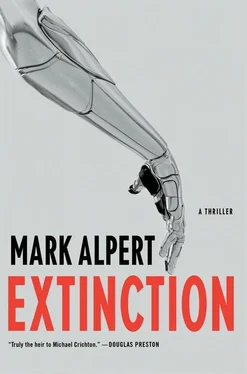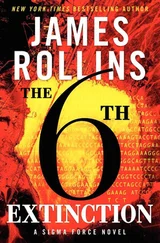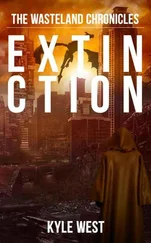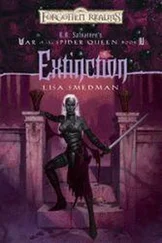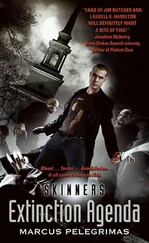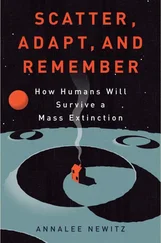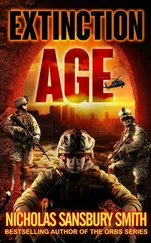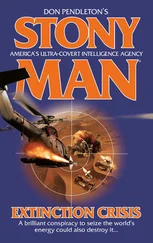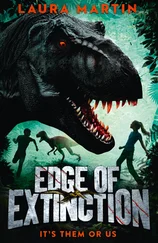Supreme Harmony ordered the drone swarm to fly to the position and investigate.
“Stop right there!” Nash shouted. He strode across the mushroom-strewn dirt of the underground chamber, keeping his pistol aimed at Kirsten. “Who are you?”
For a moment she said nothing. She just stared at the pistol, wishing she’d listened to Jim and taken his Glock. And then her professional training, so long in disuse, kicked into gear. She was holding a rake. For a split second, she considered using it as a weapon, but she swiftly rejected the idea. You don’t bring a rake to a gunfight . But the farming tool gave her another idea. She’d taken great care to dress as a Beijinger, a frumpy middle-aged woman who would blend into the background of the hutong. And she’d just been wondering if some thrifty resident of the neighborhood still worked this underground plot of mushrooms. So the solution was clear: She would become that underground farmer.
She glared at Nash and started shouting at him in Mandarin. Her accent wasn’t quite right—more like the Mandarin spoken in Wuhan, her parents’ birthplace, than the Beijing dialect—but she doubted that Nash would notice the difference. “What are you doing here!” she yelled. “You don’t belong here! And stop pointing that gun at me!” She advanced toward him, unafraid, holding the rake in a threatening but inexpert way. “Get out of here! If you don’t get out of here now, I’m going to call the police!”
She saw the uncertainty in Nash’s face. He’d assumed the tunnels would be deserted, but now Kirsten sensed he was questioning that assumption. He’d been able to enter the Underground City without much trouble, so why couldn’t the locals do the same?
“Get out of here!” Kirsten shouted again in Mandarin, angrily waving her rake. Then she pretended to return to her work, raking the dirt in long sweeps and bending over to grasp the uprooted mushrooms.
From the corner of her eye, she saw Nash hesitate. Then he walked away, moving quickly, heading back to the stairway and the trapdoor and the condemned building.
Kirsten waited until his footsteps faded away. Then she waited a little more, just in case he decided to double back. While she was waiting, she thought about the radio signal she’d seen in the pocket of Nash’s jacket before he entered the Underground City. The signal wasn’t there when he’d confronted her in the mushroom patch. Which meant he’d either turned off the transmitter or left it somewhere in the tunnels. Perhaps he’d hidden it. The tunnels would make a good hiding place. No one would be able to find the device unless they knew the frequency of the waves it was emitting. But Kirsten knew the frequency. It was already programmed into her camera-glasses.
After five minutes she dropped the rake and walked to the other side of the chamber. She stepped through the doorway where Nash had appeared and found herself in another corridor with a concrete floor. Nash’s footsteps showed clearly in the dust, two sets of footprints now, one moving down the corridor and the other coming back. Kirsten resumed following the trail.
Inside the watchtower, Arvin Conway faced General Tian. They stood in a dark, dank room with stone walls that smelled of urine. A large wooden crate sat in the corner of the room, and next to it was a stairway going up to the top of the tower. A small window had been carved into the west-facing wall, and a shaft of evening light slanted down to the stone floor. The two men in dark suits stood behind Arvin, while the general stood in front of the window, partly blocking the light. Tian was silhouetted against the glare from the setting sun, which illuminated the back of his olive-green uniform and beret.
“We’ve confirmed your identity,” Tian said. “You are Arvin H. Conway.”
Arvin was puzzled. What the general had just said was strange enough, but the sound of his voice was even stranger. During Arvin’s previous meetings with Tian, the general had spoken halting English, but now his command of the language was perfect. He barely had an accent. “Uh, yes,” Arvin responded. “It’s good to see you again, General.”
“You were born March 20, 1938. Place of birth, Los Angeles, California. Social Security number, 105-23-4988.”
Arvin laughed nervously. This must be some kind of test , he thought. “Yes, quite correct. Were you worried that someone might try to impersonate me?”
“We know why you’ve come to China.”
Arvin let out another nervous chuckle. It was all going wrong. In his experience he’d found that Chinese officials didn’t usually come to the point this quickly. It was considered impolite to be so abrupt. “Well, first let me say how much—”
“We’ve examined the Guoanbu’s dossiers on you. We’ve also reviewed your publications, the articles you wrote for The Artificial Intelligence Review and The Journal of Computational Neuroscience . We’ve concluded that you’re attempting to deceive us.”
Why on earth was Tian addressing him this way? It was impolite even by American standards. Coming from a Chinese official, it was rude beyond belief. Arvin tried to muster his dignity. “I don’t know what you’re talking about. I’ve been nothing but honest with you.”
“You’ve claimed that your goals are commercial in nature. You said you participated in the Supreme Harmony project because you wanted to accelerate the development of your implant technology. But your writings indicate another motivation. In your publications, you repeatedly state your belief that a human being’s long-term memories are transferable. And you theorize that if a human’s memories are downloaded into a sufficiently powerful computer, this new mind would be essentially identical to the human’s.”
Tian sounded like a prosecutor describing the charges in an indictment. Arvin’s confusion gave way to anger. “Yes, that’s all true. But I’m afraid I don’t see the context. What’s your point, exactly?”
“On December 13, 2011, you visited Dr. Glenn Davison of Huntington Hospital in Pasadena, California. Dr. Davison diagnosed you with Stage Three pancreatic cancer. You underwent chemotherapy and radiation treatment for fourteen months, but earlier this year your illness progressed to Stage Four. The median survival time for this type of cancer is less than six months.”
Now Arvin grew even angrier. How did the Guoanbu learn about his diagnosis? “Very nice,” he said icily. “I suppose you hacked into the hospital’s database to find my records?”
Tian stepped forward. The general’s eyes were bloodshot and his skin was reddish, especially on his forehead just below his beret. “The tone of your voice suggests that you feel insulted. But we have more reason to be insulted than you do. You’ve come to China to take something away from us. Something that doesn’t belong to you.”
Arvin shook his head. “I wasn’t planning to take anything. I was planning to make an offer. In our last conversation you said the Supreme Harmony project faced a budget shortfall of a hundred million dollars. I’m willing to contribute that amount in exchange for the use of one of the Modules in the Supreme Harmony surveillance network.”
“You wish to download your memories into the Module? Memories that your pulvinar implant has collected?”
“Yes, exactly. I plan to transfer the data to the Module’s brain through its retinal implants.”
“And your hope is to resurrect yourself? By putting the contents of your brain into the Module’s?”
“Look, for all intents and purposes, the prisoner is already dead. The lobotomy has erased his consciousness, so his brain is a blank slate. What I’m proposing is an experiment to see if I can write on it. It’s an experiment that the older members of your Party’s Central Committee might be very interested in because—”
Читать дальше
